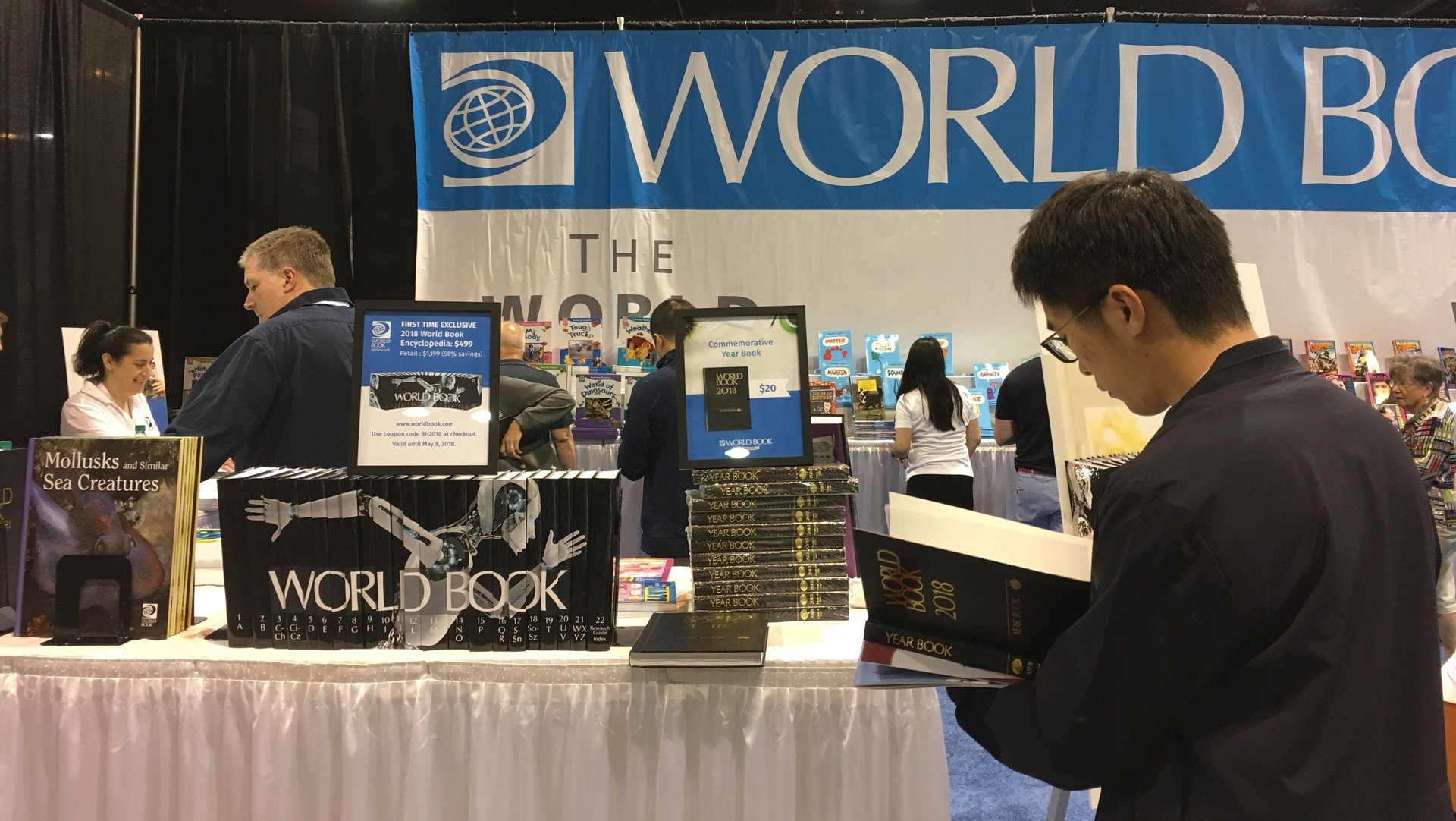The last shop on Earth that still sells the World Book encyclopedia
Omaha, Nebraska


Omaha, Nebraska
Shareholder Shopping Day at the Berkshire Hathaway annual meeting is one of the quirkiest pop-up malls in the US. The day before the actual meeting, which this year takes place today, dozens of Berkshire subsidiaries like See’s Candy and Fruit of the Loom fill the exhibit hall of downtown Omaha’s CenturyLink Center to offer their wares at discount rates to roughly 40,000 visiting shareholders.
It’s a star-studded event—on Friday, both the Kool-Aid Man and Mr. Peanut were present for photo opportunities—but one table literally stopped shoppers in their tracks.
“Oh, my God,” a passerby said.
“They still make these?” said another.
Someone else reached out, touched the product, and said the words that previous shoppers’ tones implied: “Why would anyone buy this?”
She was talking about the 2018 World Book encyclopedia set: 22 hardbound volumes encasing 17,000 utilitarian summaries on everything from presidents to plants. For decades, an up-to-date encyclopedia was the school-age child’s best starting point for a research project and the symbol of a well-appointed home, school, or library.
That was then. Now, with a sweeping selection of information available online with a few quick taps, encyclopedias have become about as useful as telephone directories. Encyclopedia Britannica ceased print production in 2012. But World Book lives on. The only official sales outlet is the company’s website. This year’s Berkshire annual meeting is the first time in years that the print product has been hauled out for retail purchase, a company rep said Friday. Shareholders could buy a set for $499—a 58% savings on the usual $1,199 cover price.
World Book does not disclose annual sales. Its rep would say only that “thousands” of print sets are still ordered each year, mostly by schools who use them as teaching tools for library research skills. Public libraries and homeschooling families are also frequent purchasers.
Paging through the encyclopedia, whose photographs and typeset look nearly identical to those of sets decades older, reveals the arbitrary editorial parameters of the pre-internet age. “God” gets about a one-page entry; “goat” gets two. “Global warming” gets five pages; “golf” gets eight. The “Google” entry is about twice as long as that for “gooseberry,” but only one-third the length of the article on “goose.”
The Scott Fetzer Company, which owns Ginsu knives and other consumer brands, bought World Book in 1978. Berkshire Hathaway acquired the company in 1985, about 10 years before the rise of the home computer sent sales plummeting. Chairman Warren Buffett (encyclopedia entry: “Buffett, Warren Edward (1930— ),” wedged between “buffaloberry” and “buffeting”) loathes selling his companies, however, and has stayed loyal to the product.